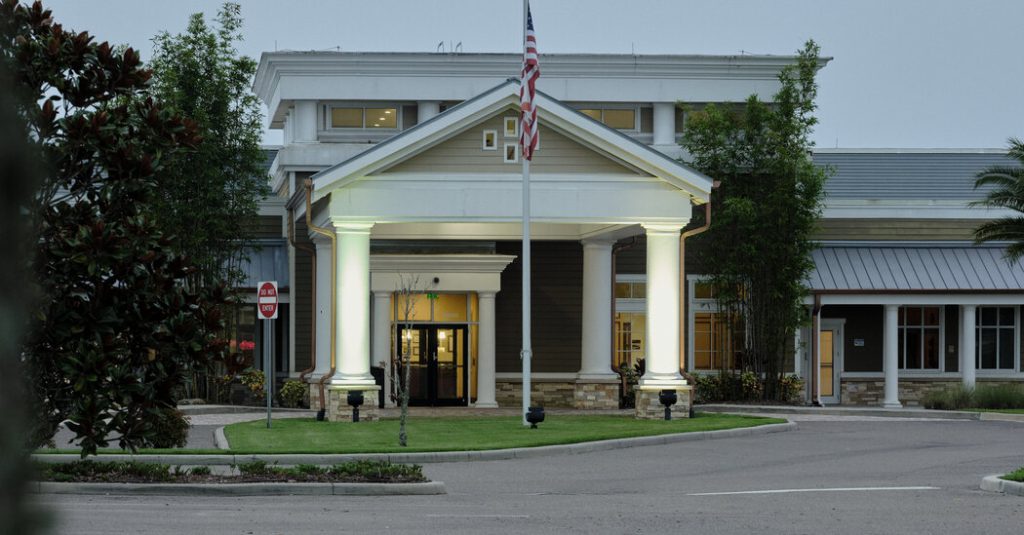Last year was tough for Acadia Healthcare, one of the country’s largest providers of mental health services.
A slew of federal agencies opened investigations into whether Acadia illegally held patients against their will in its psychiatric hospitals, as described in a New York Times investigation in September. The federal inquiries rattled investors, causing Acadia’s stock to plummet.
But Acadia’s troubles have been a boon to the company’s chief executive, Christopher Hunter. Its board of directors awarded him a $1.8 million bonus to help respond to “unprecedented governmental inquiries,” according to a financial filing this month. The bonus comes on top of his regular compensation, which totaled more than $7 million in 2024.
Acadia’s chief financial officer and general counsel were also granted bonuses of about $1 million, and the chief operating officer was promised $600,000. Acadia said the bonuses, which will be paid in March of next year, were awarded to ensure that the leaders did not leave before the investigations were completed.
The company’s board decided that keeping its leadership team was “in the best long-term interest of the company and the patients and communities it serves,” said Tim Blair, a spokesman for Acadia. “The company follows a pay-for-performance philosophy, using peer market data for benchmarking and calibration,” he added.
The Times reported that Acadia was holding patients against their will in order to maximize insurance payouts. Some patients arrived at emergency rooms seeking routine mental health care but were sent to Acadia facilities, where they were locked inside and isolated from their families. The practices began before Mr. Hunter became chief executive, in April 2022, but continued under his watch, The Times found.
The company has forcefully denied any misconduct and said it would cooperate with the investigations. “The allegation that Acadia systematically holds patients longer than medically necessary is false and goes directly against everything we do and stand for when it comes to patient care,” Mr. Hunter told investors in October.
After the article was published, Acadia told investors that several government agencies, including the Justice Department and the Securities and Exchange Commission, had begun investigations. In October, executives disclosed that admissions to their facilities were not as high as expected. That same month, shareholders brought a class-action lawsuit against the company, arguing that Acadia concealed its practices from investors.
The Times also found problems in other parts of Acadia’s businesses, including its methadone clinics, which were billing the government for services, like counseling, that it did not provide. And inadequate staffing led to a series of tragedies at one of the company’s prized women’s facilities, The Times reported Tuesday.
Since September, the company has lost roughly $5 billion of its market value and is now worth about $2 billion.
Like many chief executives, Mr. Hunter’s compensation is tied in part to Acadia’s share value. In 2024, the company’s falling stock led him to miss his performance goals, which lowered his pay, according to the April filing.
But Sarah Anderson, an executive compensation analyst at the Institute for Policy Studies, a left-leaning think tank, said that those incentives are undermined when companies like Acadia give bonuses despite poor performance.
“The whole argument of tying your compensation to the stock price is so that the executives will bear risk of their actions,” she said. “This is just going completely against that.”


